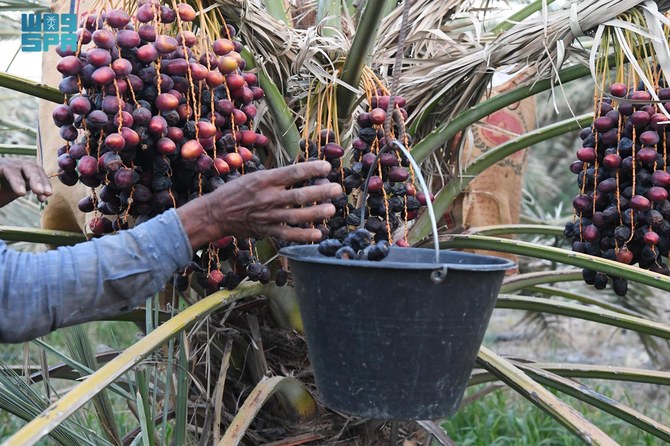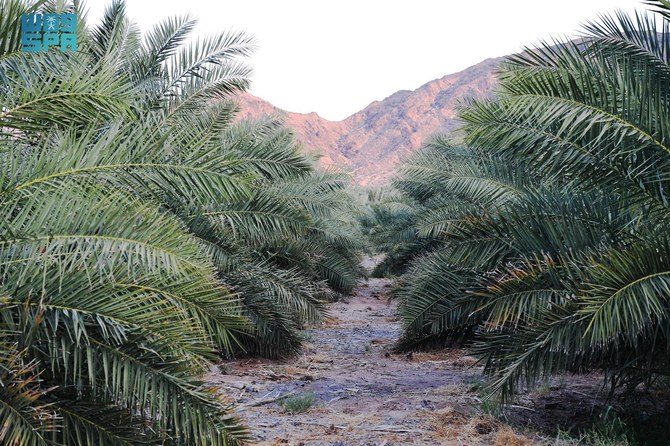MADINAH: Farmers in Madinah have begun to harvest dates as the palm fruit reached optimum ripeness this agricultural season, the Saudi Press Agency reported.
The process of ripening date palms involves several stages, starting with pollination and moving on to thinning, where excess fruit is removed to support optimal growth. The dates are carefully bagged in palm fronds to shield them from the sun’s heat before being harvested.
Abdullah bin Abdulaziz Al-Radadi, chairman of the Madinah Dates Cooperative Association, highlighted the significance of post-harvest practices in ensuring the quality of the final product.
Al-Radadi said recent studies indicate that storing dates at 4 degrees Celsius for six months preserves the fruit and boosts its nutritional value by enhancing phenols (an antiseptic and disinfectant that can protect against a wide range of micro-organisms including some fungi and viruses); this process also maintains and improves antioxidants in dates, which helps to double the nutritional value after a year of preservation.
Speaking on the unique qualities of dates, Al-Radadi emphasized their consumption at different ripening stages: the “khalal” stage, when the fruit changes colour to yellow or red based on the variety; the “rutab” stage, when the fruit softens; and the “tamr” stage, when the date is fully ripe, soft and can be eaten either moist or dry.
He said that because of the intense sunshine in the Kingdom, scientific research has proven that dates develop more phenols to survive harsh conditions. These polyphenols offer protection against various diseases.
He also pointed out that the various dates currently available include ajwa, sukkari and medjool, while safawi, anbarah, barni and shalaby dates will be available later in the season.




















